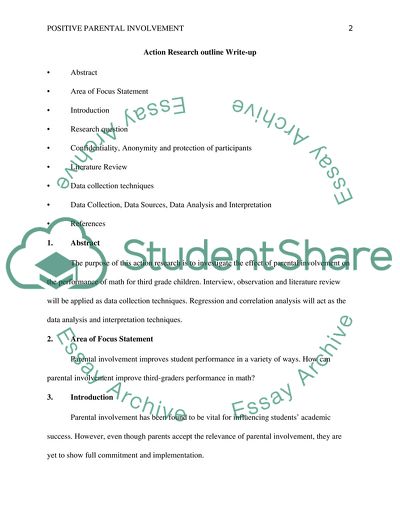Cite this document
(The Effects of Positive Parental Involvement on Third Grade Students Research Proposal Example | Topics and Well Written Essays - 2750 words, n.d.)
The Effects of Positive Parental Involvement on Third Grade Students Research Proposal Example | Topics and Well Written Essays - 2750 words. https://studentshare.org/education/1866367-the-effects-of-positive-parental-invilvement-on-third-grade-students-math-sucess
The Effects of Positive Parental Involvement on Third Grade Students Research Proposal Example | Topics and Well Written Essays - 2750 words. https://studentshare.org/education/1866367-the-effects-of-positive-parental-invilvement-on-third-grade-students-math-sucess
(The Effects of Positive Parental Involvement on Third Grade Students Research Proposal Example | Topics and Well Written Essays - 2750 Words)
The Effects of Positive Parental Involvement on Third Grade Students Research Proposal Example | Topics and Well Written Essays - 2750 Words. https://studentshare.org/education/1866367-the-effects-of-positive-parental-invilvement-on-third-grade-students-math-sucess.
The Effects of Positive Parental Involvement on Third Grade Students Research Proposal Example | Topics and Well Written Essays - 2750 Words. https://studentshare.org/education/1866367-the-effects-of-positive-parental-invilvement-on-third-grade-students-math-sucess.
“The Effects of Positive Parental Involvement on Third Grade Students Research Proposal Example | Topics and Well Written Essays - 2750 Words”. https://studentshare.org/education/1866367-the-effects-of-positive-parental-invilvement-on-third-grade-students-math-sucess.


